Clik here to view.

Images via the MCNY
As home to four thousand animals representing more than 650 species, the Bronx Zoo has been delighting children and grownups alike since 1899. But it’s not simply the extensive array of wildlife that makes this world-renowned conservation park a pleasure to stroll around. Nestled among the 265-acres of parklands and beautifully-replicated natural habitats is a collection of architecture that almost rivals the main attraction. Ahead we’ll visit the zoo’s most notable constructions, which though may draw upon the architectural styles of various eras—from Beaux-Arts to Brutalism—do culminate into one succinct and spectacular display of design.
Image may be NSFW.
Clik here to view.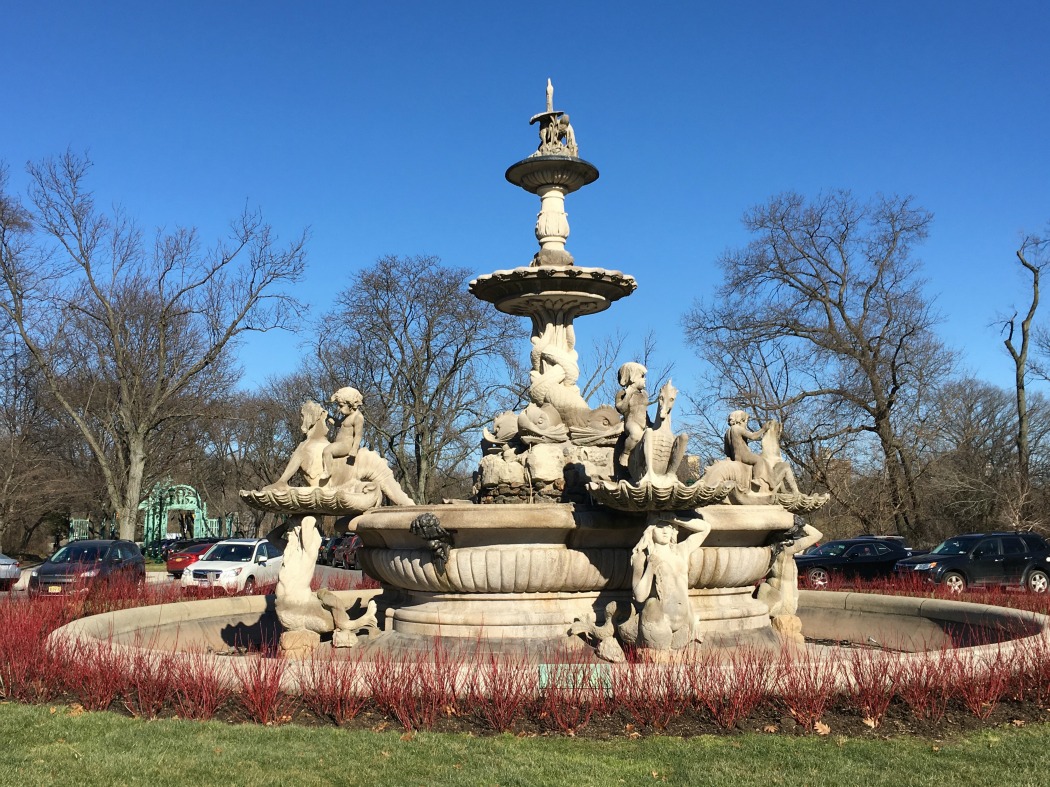
Image may be NSFW.
Clik here to view. Rockefeller Fountain (top); Rainey Gate and one of its two granite gatekeepers(bottom)
Rockefeller Fountain (top); Rainey Gate and one of its two granite gatekeepers(bottom)
The original Fordham Road entrance to the zoo features the spectacular Rainey Gate. The green Art Deco style double arches designed by Paul Manship feature 22 full-sized sculpted bronze animals and connect to two granite gatekeeper lodges. This New York City designated landmark, which is listed on the National Register of Historic Places, leads you past the historic Rockefeller Fountain (also landmarked) to the Beaux-Arts buildings of Astor Court, formerly known as Baird Court. Designed by the firm of Heins and LaFarge, they remain virtually untouched by time, majestically standing guard around the ever-popular circular sea lion pool since the turn of the century, true to the zoo’s original plans.
Image may be NSFW.
Clik here to view. One of the Beaux Arts buildings of Astor Court
One of the Beaux Arts buildings of Astor Court
The landmarked collection of buildings originally housed many of the most popular animal exhibits as evidenced by the names and reliefs etched into the facades. The monkeys, lions, birds, and elephants have since moved on to more open-spaced living quarters and their former dwellings function mostly as administrative offices.
Image may be NSFW.
Clik here to view. Administration Building, Astor Court
Administration Building, Astor Court
At the far end of Astor Court is the Zoo Center, formerly the Elephant House. With its majestic double-domed top and Guastavino polychromed tile arches and vaults, the Zoo Center creates the perfect bookend for this historical section. Apparently Guastavino wasn’t the only one who wanted to leave his mark on this particular building. In 1914, a poem mysteriously found its way onto one of the walls and no one ever fessed up to the verses. Some think that Gunda the elephant had a hand—or rather, a trunk—in it.
Image may be NSFW.
Clik here to view.
Image may be NSFW.
Clik here to view.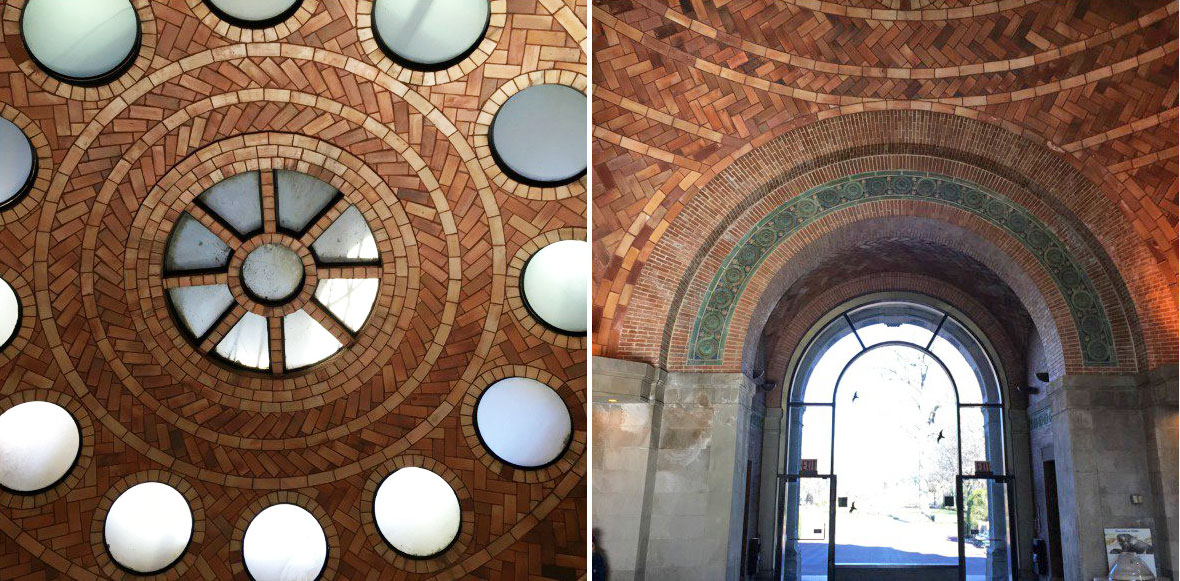 Exterior of the Zoo Center (top); Examples of the gorgeous Guastavino tile work in the former Elephant House (bottom)
Exterior of the Zoo Center (top); Examples of the gorgeous Guastavino tile work in the former Elephant House (bottom)
As the zoo’s resident population increased over the years, the more traditional architecture of Astor Court gave way to some structures as wild as the animals within. In the summer of 1972 the Lila Acheson Wallace World of Birds opened its doors thanks to a $5 million donation Ms. Wallace bestowed upon the New York Zoological Society. The massive concrete building is flanked by two soaring outdoor walkways that fittingly evoke the appearance of wings.
Image may be NSFW.
Clik here to view.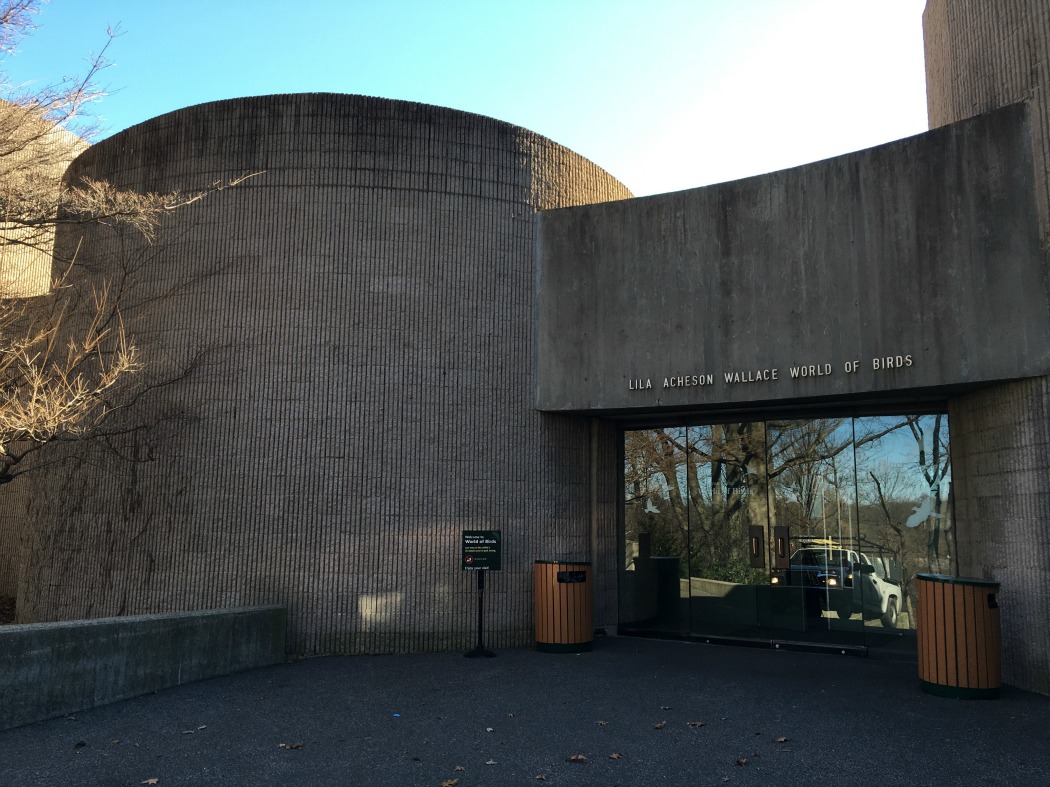
Image may be NSFW.
Clik here to view.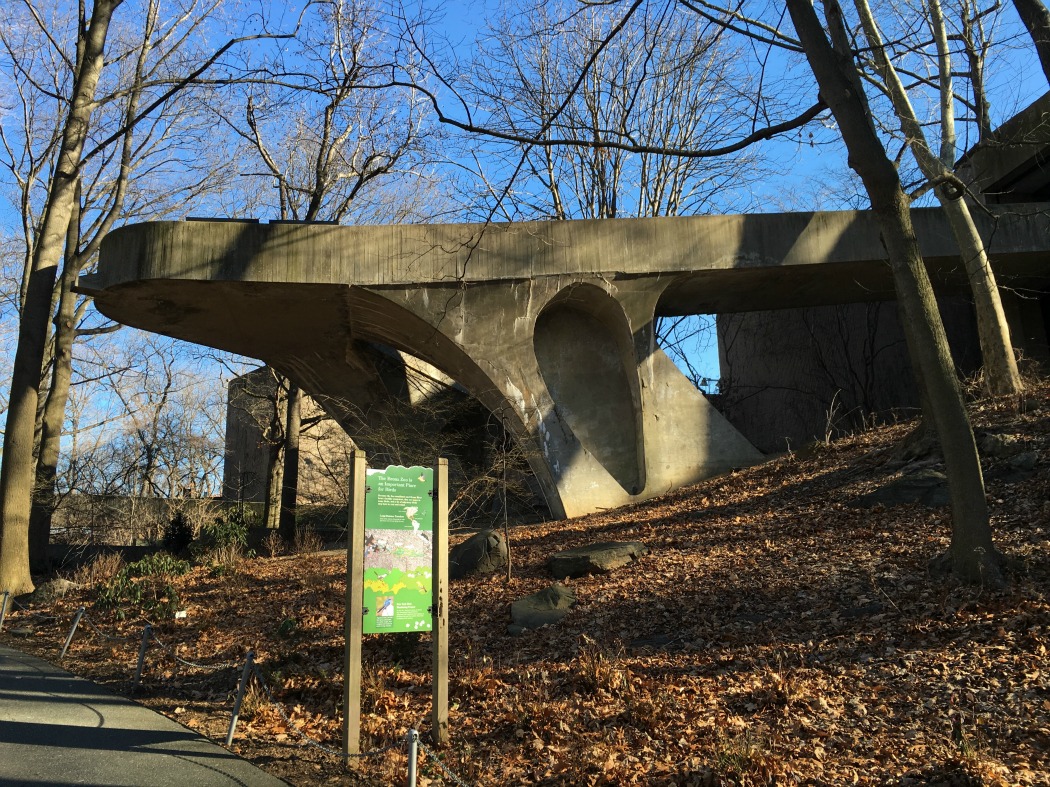 Lila Acheson Wallace World of Birds
Lila Acheson Wallace World of Birds
Another imposing but fascinating ediface in the midst of the zoo’s bucolic setting is the World of Darkness. Opened in the 1960s, the first major exhibit of nocturnal animals in the world was housed in a building that looked as spooky as some of its inhabitants. Big and black with no perceivable openings, the octagonal shaped structure was closed in 2009 due to budget cuts.
Image may be NSFW.
Clik here to view.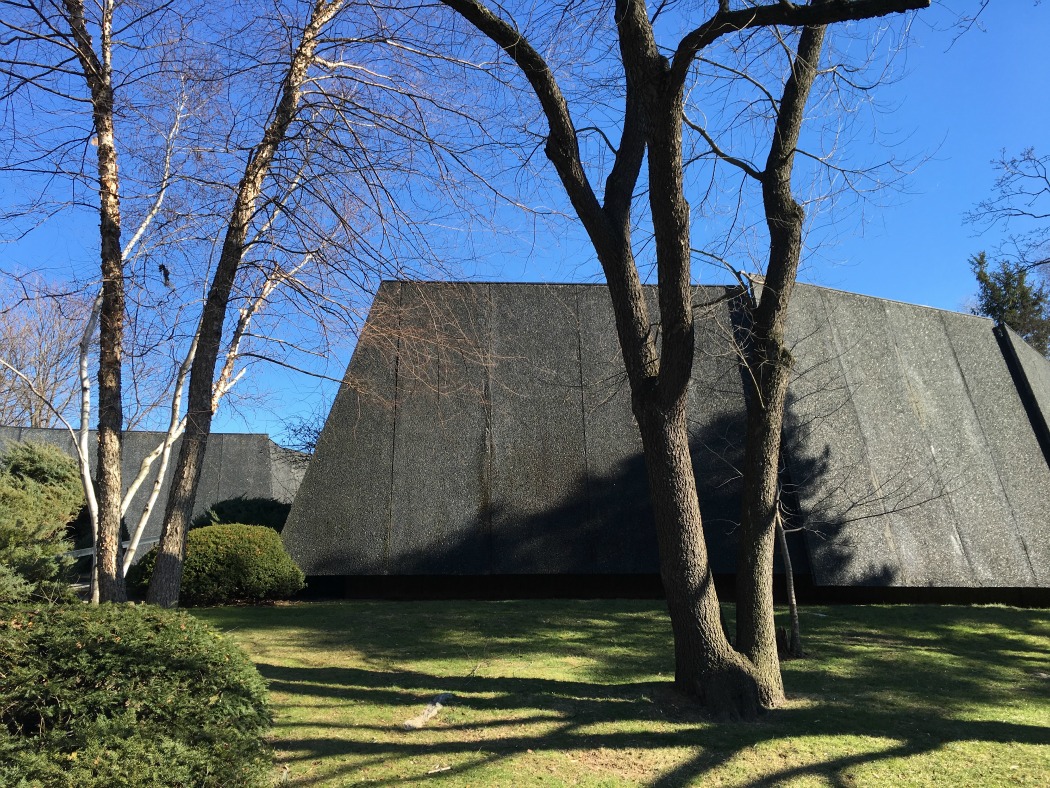 The now-closed World of Darkness
The now-closed World of Darkness
Tapping into a more whimsical aesthetic is the David Rockwell-designed Dancing Crane Café. The 17,500 square-foot restaurant and resting area has indoor and outdoor seating overlooking a natural marsh and fits unobtrusively into its surroundings.
Image may be NSFW.
Clik here to view.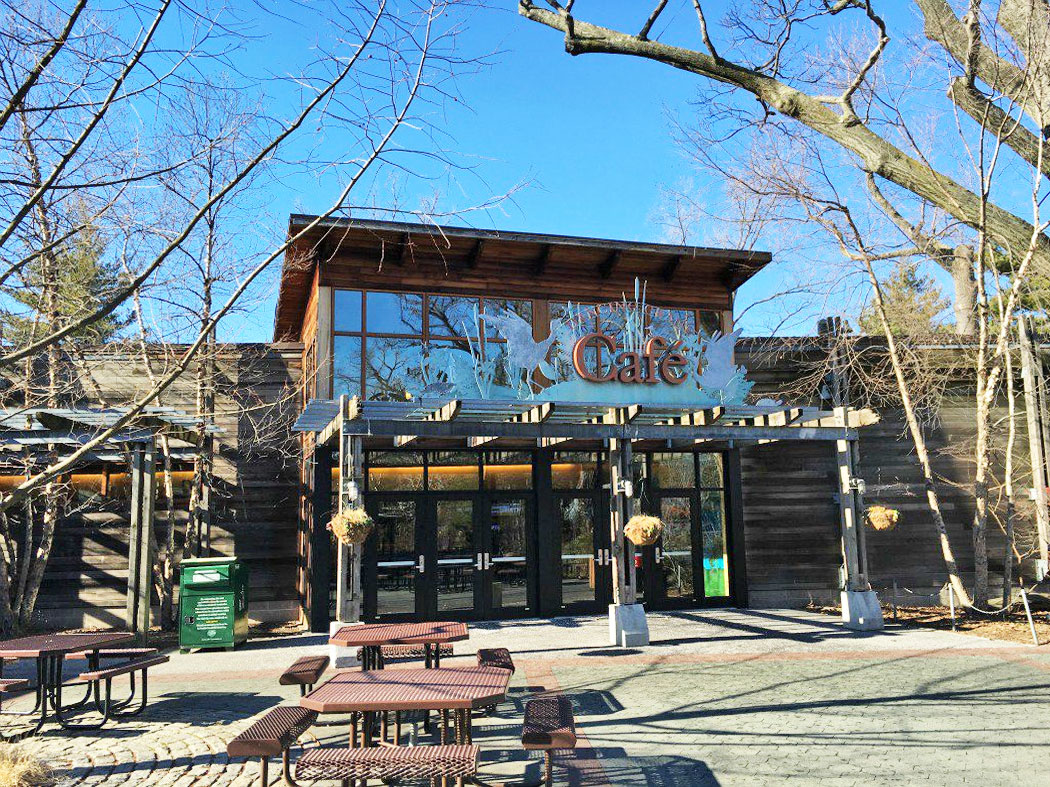 David Rockwell-designed Dancing Crane Cafe
David Rockwell-designed Dancing Crane Cafe
The fanciful Bug Carousel was installed in 2005. Beneath its charming green canopy you will find sixty-four rideable insect figures and three stationary chariots positioned among a sweet hand-painted mural revealing the transformation of caterpillars into beautiful butterflies.
Image may be NSFW.
Clik here to view. The Bug Carousel
The Bug Carousel
Whether your preference is the ageless and classic simplicity of Astor Court, or the more modern inclinations of the World of Birds, the next time you find yourself among the lions and tigers and bears of the Bronx Zoo, be sure to check out the buildings, too.
RELATED:
- Palaces for the People: Where to See the Timeless Tiled Works of Guastavino in NYC
- Shhhhh…Secrets of Your Favorite NYC Landmarks
- Harsenville to Carmansville: The Lost Villages of the Upper West Side
Clik here to view.
 Image may be NSFW.
Image may be NSFW.Clik here to view.
 Image may be NSFW.
Image may be NSFW.Clik here to view.
 Image may be NSFW.
Image may be NSFW.Clik here to view.
 Image may be NSFW.
Image may be NSFW.Clik here to view.
 Image may be NSFW.
Image may be NSFW.Clik here to view.
 Image may be NSFW.
Image may be NSFW.Clik here to view.
 Image may be NSFW.
Image may be NSFW.Clik here to view.
 Image may be NSFW.
Image may be NSFW.Clik here to view.
 Image may be NSFW.
Image may be NSFW.Clik here to view.
 Image may be NSFW.
Image may be NSFW.Clik here to view.
 Image may be NSFW.
Image may be NSFW.Clik here to view.
 Image may be NSFW.
Image may be NSFW.Clik here to view.
 Image may be NSFW.
Image may be NSFW.Clik here to view.
